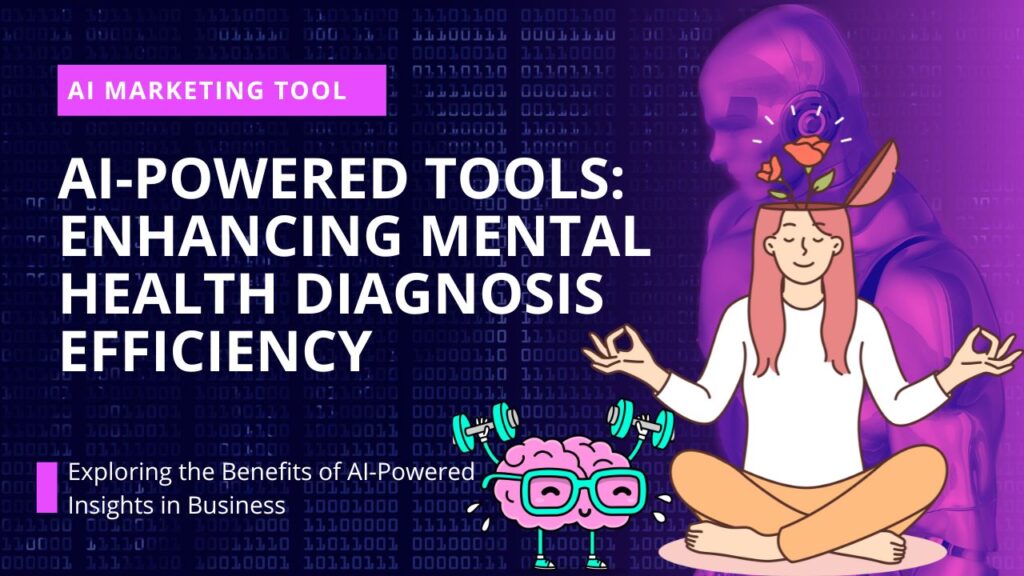
In recent years, Artificial Intelligence (AI) has emerged as a transformative force in the field of mental health, offering innovative solutions for diagnosis, treatment, and support. From advanced diagnostic tools to personalized treatment plans and remote monitoring systems, AI technologies are revolutionizing the way mental health disorders are understood and managed. This article explores the diverse applications of AI in mental health, highlighting its potential to improve access to care, enhance treatment outcomes, and reduce the stigma associated with mental illness.
Introduction: The Growing Mental Health Crisis
Mental health disorders affect millions of people worldwide, contributing to significant personal suffering and societal burden. Despite advances in treatment and awareness, many individuals still face barriers to accessing timely and effective care. Moreover, the COVID-19 pandemic has exacerbated existing mental health challenges, underscoring the urgent need for innovative solutions to support individuals in need. In this context, AI offers promising opportunities to revolutionize mental healthcare by leveraging data-driven approaches to improve diagnosis, treatment, and support services.
AI-Powered Diagnostic Tools
One of the key areas where AI is making an impact in mental health is in the development of diagnostic tools that leverage machine learning algorithms to analyze complex data sources and identify patterns indicative of mental health disorders. For example, researchers are exploring the use of natural language processing (NLP) algorithms to analyze text data from social media posts, electronic health records, and online forums to detect signs of depression, anxiety, and other mental health conditions. By analyzing linguistic cues, sentiment, and behavioral patterns, these AI algorithms can help identify individuals at risk and facilitate early intervention and treatment.
Personalized Treatment Plans
Another area where AI is transforming mental healthcare is in the development of personalized treatment plans that leverage data-driven approaches to tailor interventions to the unique needs and preferences of each individual. AI algorithms can analyze a wide range of data sources, including genetic information, neuroimaging scans, and patient-reported outcomes, to identify optimal treatment strategies based on factors such as symptom severity, treatment response, and comorbidities. By providing personalized recommendations, AI-powered treatment planning tools can help improve treatment outcomes and reduce the trial-and-error approach often associated with mental health treatment.
AI-Powered Therapy and Support
AI technologies are also being used to enhance therapy and support services for individuals with mental health disorders. Virtual reality (VR) therapy, for example, uses immersive simulations and AI-driven algorithms to create therapeutic environments that help individuals confront and overcome their fears and anxieties. Similarly, chatbots and virtual assistants powered by AI are being deployed to provide real-time support and guidance to individuals in need, offering a convenient and accessible way to access information, resources, and coping strategies. These AI-powered support tools have the potential to expand access to mental health services and reduce the stigma associated with seeking help.
Remote Monitoring and Predictive Analytics
AI is also revolutionizing mental healthcare by enabling remote monitoring and predictive analytics solutions that can help identify individuals at risk of developing mental health disorders or experiencing relapse. For example, wearable devices equipped with biometric sensors and AI algorithms can track physiological indicators of stress, anxiety, and depression in real-time, providing valuable insights into individuals’ mental health status and triggering alerts when intervention may be needed. Additionally, AI-powered predictive analytics models can analyze large datasets to identify patterns and trends indicative of impending mental health crises, enabling proactive interventions and support services.
Ethical and Social Considerations
While the potential benefits of AI in mental health are significant, there are also ethical and social considerations that must be addressed to ensure responsible and equitable deployment of AI-powered technologies. Concerns have been raised about data privacy and security, particularly regarding the collection and analysis of sensitive health information. Additionally, there are questions about the accuracy and reliability of AI algorithms, as well as the potential for algorithmic bias to disproportionately impact certain populations. It is essential for policymakers, clinicians, and technology developers to work together to address these concerns and ensure that AI is deployed in a manner that prioritizes patient safety, privacy, and well-being.
Future Directions and Conclusion
Looking ahead, the future of AI in mental health holds immense promise, with continued advancements in AI-driven technologies expected to further transform diagnosis, treatment, and support services. By leveraging data-driven approaches and innovative technologies, mental healthcare providers can improve access to care, enhance treatment outcomes, and reduce the burden of mental illness on individuals and society. However, it is important to approach the integration of AI in mental health with caution, ensuring that ethical, legal, and social considerations are carefully considered and addressed. With thoughtful planning and collaboration, AI has the potential to revolutionize mental healthcare and offer new hope for individuals struggling with mental health disorders.






